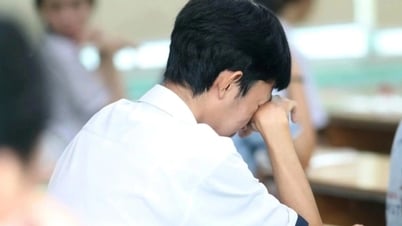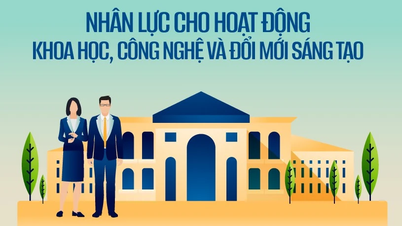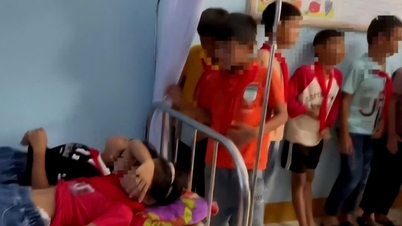This regulation has just been officially issued by the Ministry of Education and Training in the Circular on rewards and discipline for students, effective from October 31. The new Circular will replace Circular 08 guiding on rewards and discipline for students in general schools since 1988, nearly 40 years ago.
According to the new circular, disciplinary measures for primary school students are warnings and requests for apology.
For students other than primary school students, there are 3 forms: Reminder; criticism; request to write a self-criticism.
Thus, compared with Circular 08 and previous regulations, suspension and expulsion of students from school are abolished.

Students who violate discipline will be warned, criticized or write a self-criticism, instead of the current maximum suspension from school (Illustration photo AI).
Students are disciplined if they violate the Education Law, school regulations or authorities.
Behaviors are divided into 3 levels: Violations that have harmful effects on the student himself (level 1), violations that have negative effects within the group or class (level 2), violations that have negative effects within the school (level 3).
Educational facility managers, teachers and staff shall determine the level of violation based on the nature and consequences of the violation.
In addition to disciplinary measures, the circular also provides support activities to overcome behavior, including: advising, encouraging, monitoring, consulting, supporting, requiring participation in some school counseling activities, social work in schools, etc.
When the draft circular was announced in May, many teachers and parents expressed their concerns. They said that simply giving reminders or writing self-criticisms would not be enough to deter unruly and unruly students. They were concerned about the lack of more severe tools to educate them.
The specific disciplinary measures are as follows:
Reminding is when educational institution managers, teachers, and school staff use direct words to students who have committed violations to note, learn from experience, and adjust behavior.
Criticism is when the principal or homeroom teacher uses direct, strict words to analyze and evaluate the violation so that students are aware of the consequences and have measures to correct and adjust their behavior.
An apology is when a student uses words to admit the violation, clearly recognizes the wrongdoing of the behavior, expresses regret for what has been done, wishes to be forgiven and remedy the consequences for the individual or group that the student caused the mistake.
Writing a self-criticism is when a student admits his/her violation in writing, clearly recognizes the wrongdoing of his/her behavior, expresses regret for what he/she has done, wishes to be forgiven, and commits to learn from experience and remedy the consequences for the individual or group that the student caused the mistake.
Source: https://dantri.com.vn/giao-duc/bo-dinh-chi-hoc-ky-luat-nang-nhat-voi-hoc-sinh-la-viet-kiem-diem-20250918080628626.htm





![[Photo] National Assembly Chairman Tran Thanh Man attends the inauguration ceremony of the Memorial Site of National Assembly Standing Committee Chairman Bui Bang Doan](https://vphoto.vietnam.vn/thumb/1200x675/vietnam/resource/IMAGE/2025/9/28/6feba23492d14b03b05445dd9f1dba88)










![[Video] Proposed incentives for lecturers and students in the field of high-speed railways and urban railways](https://vphoto.vietnam.vn/thumb/402x226/vietnam/resource/IMAGE/2025/9/28/9c7714da41184a428707ce408e3f80be)

















































































Comment (0)